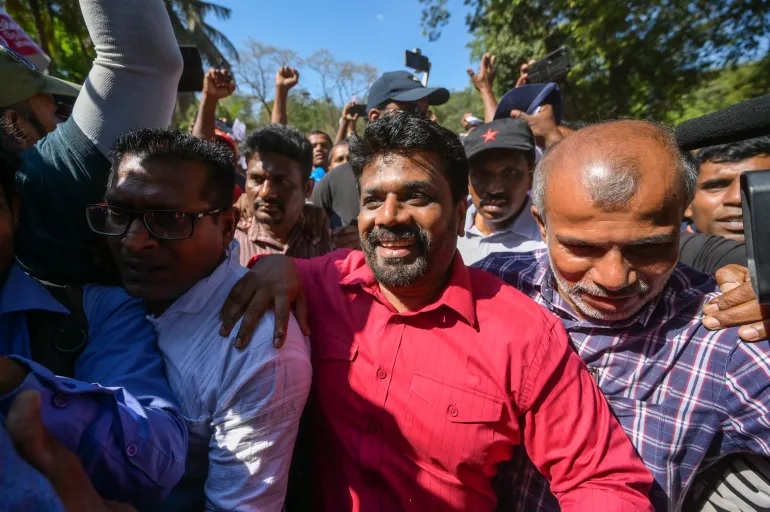
Sri Lanka's economy and the impact of the $2.9bn IMF loan as elections approach
As Sri Lanka prepares for its presidential election, the economy stands as the central issue. Following the country's worst financial crisis in decades, a key topic for voters is the $2.9 billion loan agreement with the International Monetary Fund (IMF) and the strict austerity measures that came with it. Incumbent President Ranil Wickremesinghe, alongside his two main opponents, Anura Kumara Dissanayake and Sajith Premadasa, offer differing views on how to navigate the country’s economic recovery.
Wickremesinghe, a six-time prime minister and a member of the United National Party, secured the IMF loan to address the crisis. The loan helped stabilize the Sri Lankan rupee and bring down inflation from a peak of 74% in 2022. However, it also came with austerity measures, such as VAT increases and the removal of electricity subsidies, which have contributed to a rise in poverty and lower wages.
Premadasa, representing the Samagi Jana Balawegaya party, has criticized the IMF deal, advocating for export market growth and stronger rule of law as a solution. Meanwhile, Dissanayake, the leader of the far-left Janatha Vimukthi Peramuna party, has proposed reforms to ease the burden on citizens. He suggests exempting essential goods from VAT and restructuring Sri Lanka's debt to favor domestic over external creditors.
Sri Lanka has restructured over $12.5 billion in international bonds as part of its recovery efforts. Yet, critics argue that the IMF deal places too much strain on public resources, reducing investments in areas like education and healthcare.
Sri Lanka’s debt-to-GDP ratio is expected to decrease from 128% in 2022 to around 100% by 2028, but high debt servicing costs will remain a challenge. As the election draws near, candidates face the difficult task of balancing economic recovery with public welfare.
Stichworte







